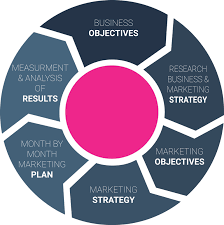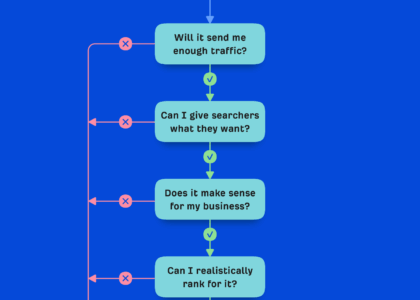Marketing Development Strategy: A Key to Business Growth
In today’s competitive business landscape, having a well-defined marketing development strategy is crucial for sustainable growth and success. A marketing development strategy outlines a roadmap for reaching new customers, retaining existing ones, and increasing brand awareness. It involves a series of planned actions aimed at achieving specific marketing objectives and driving business growth.
The Importance of a Marketing Development Strategy
A robust marketing development strategy helps businesses identify their target audience, understand market trends, and differentiate themselves from competitors. By aligning marketing efforts with overall business goals, companies can maximise their resources and achieve a higher return on investment.
Key Components of a Marketing Development Strategy
Market Research: Conducting thorough market research is essential for identifying customer needs, preferences, and behaviours. This data forms the foundation for developing targeted marketing campaigns.
Target Audience Analysis: Understanding the demographics, psychographics, and buying habits of your target audience allows you to tailor your messaging and offerings to meet their specific needs.
Brand Positioning: Clearly defining your brand’s unique value proposition and positioning it effectively in the market helps create a strong brand identity that resonates with customers.
Marketing Channels: Choosing the right mix of marketing channels – such as digital advertising, social media, email marketing, and content marketing – ensures that your message reaches the right audience at the right time.
Implementing Your Marketing Development Strategy
Once you have developed your marketing strategy, it is essential to implement it effectively. This involves setting measurable goals, creating a detailed action plan, allocating resources efficiently, monitoring performance metrics, and making adjustments based on feedback and results.
Conclusion
A well-crafted marketing development strategy is an indispensable tool for businesses looking to expand their reach, drive sales growth, and build lasting relationships with customers. By investing time and resources into developing a strategic approach to marketing, companies can position themselves for long-term success in today’s dynamic marketplace.
Seven Essential Tips for Crafting an Effective Marketing Development Strategy
- Conduct market research to understand your target audience.
- Define clear marketing objectives and goals.
- Create a strong brand identity that resonates with your target market.
- Develop a comprehensive marketing plan with strategies for different channels.
- Utilise digital marketing tools and platforms effectively.
- Monitor and analyse the performance of your marketing campaigns regularly.
- Stay updated on industry trends and adjust your strategy accordingly.
Conduct market research to understand your target audience.
Conducting thorough market research to understand your target audience is a fundamental tip in developing an effective marketing strategy. By delving into the demographics, preferences, and behaviours of your audience, you can tailor your marketing efforts to resonate with their needs and desires. This insight allows you to create targeted campaigns that are more likely to capture the attention of potential customers and drive engagement. Understanding your target audience is key to delivering relevant messaging and building strong connections that lead to long-term brand loyalty and business growth.
Define clear marketing objectives and goals.
To establish a solid foundation for a successful marketing development strategy, it is essential to define clear marketing objectives and goals. By setting specific and measurable targets, businesses can align their marketing efforts with overarching business objectives, track progress effectively, and evaluate the success of their campaigns. Clear marketing objectives provide direction and focus, guiding decision-making processes and ensuring that resources are allocated efficiently to achieve desired outcomes. Ultimately, by establishing clear goals, companies can enhance their strategic planning, maximise ROI, and drive sustainable growth in today’s competitive market environment.
Create a strong brand identity that resonates with your target market.
Creating a strong brand identity that resonates with your target market is a fundamental tip in marketing development strategy. By clearly defining your brand’s unique value proposition and positioning it effectively in the market, you can establish a connection with your audience that goes beyond products or services. A strong brand identity helps build trust, loyalty, and recognition among consumers, setting your business apart from competitors and creating a lasting impact in the minds of your target market.
Develop a comprehensive marketing plan with strategies for different channels.
To maximise the effectiveness of your marketing efforts, it is essential to develop a comprehensive marketing plan that includes strategies tailored for different channels. By diversifying your approach and utilising various channels such as digital advertising, social media, email marketing, and content marketing, you can reach a wider audience and engage with customers at multiple touchpoints. Each channel offers unique opportunities to connect with potential customers, so crafting specific strategies for each one ensures a cohesive and targeted marketing campaign that resonates with your audience across various platforms.
Utilise digital marketing tools and platforms effectively.
In the realm of marketing development strategy, a valuable tip is to leverage digital marketing tools and platforms effectively. In today’s digital age, businesses can harness the power of online resources such as social media, email marketing, search engine optimisation (SEO), and analytics tools to reach a wider audience, engage with customers on a personal level, and track the performance of their marketing campaigns. By utilising these digital tools strategically, businesses can enhance their visibility, drive targeted traffic to their websites, and ultimately improve their overall marketing effectiveness in a cost-efficient manner.
Monitor and analyse the performance of your marketing campaigns regularly.
Monitoring and analysing the performance of your marketing campaigns regularly is a critical aspect of a successful marketing development strategy. By tracking key performance indicators such as conversion rates, click-through rates, and return on investment, you can gain valuable insights into the effectiveness of your campaigns. This data allows you to identify what is working well and what areas need improvement, enabling you to make informed decisions and optimise your marketing efforts for better results. Regular monitoring and analysis help you stay agile, adapt to changing market conditions, and ensure that your marketing strategy remains aligned with your business goals.
Stay updated on industry trends and adjust your strategy accordingly.
Staying updated on industry trends is a fundamental aspect of a successful marketing development strategy. By keeping abreast of the latest developments in your industry, you can anticipate changes in consumer behaviour, emerging technologies, and competitive landscapes. This knowledge empowers you to adapt your marketing strategy proactively, ensuring that your efforts remain relevant and effective in reaching your target audience. Continuous adjustment based on industry trends not only helps maintain a competitive edge but also fosters innovation and growth within your business.






